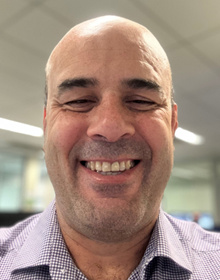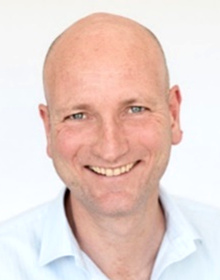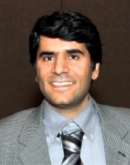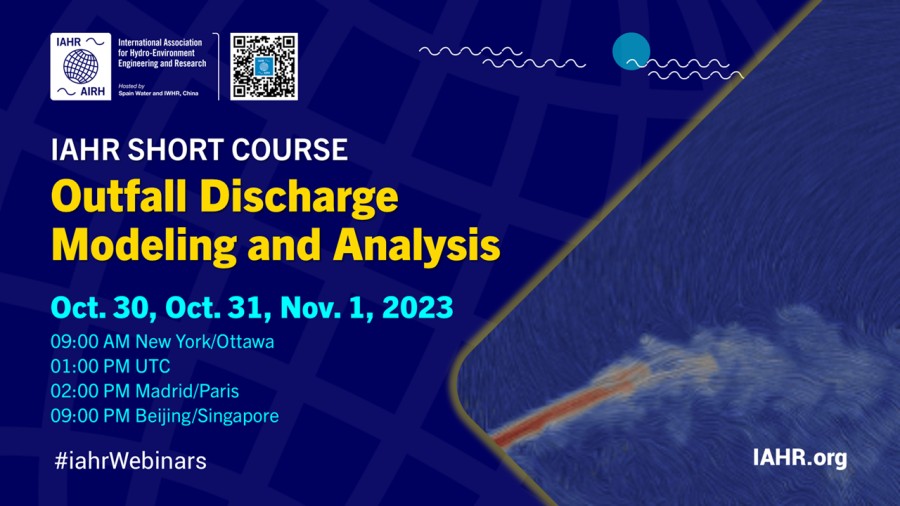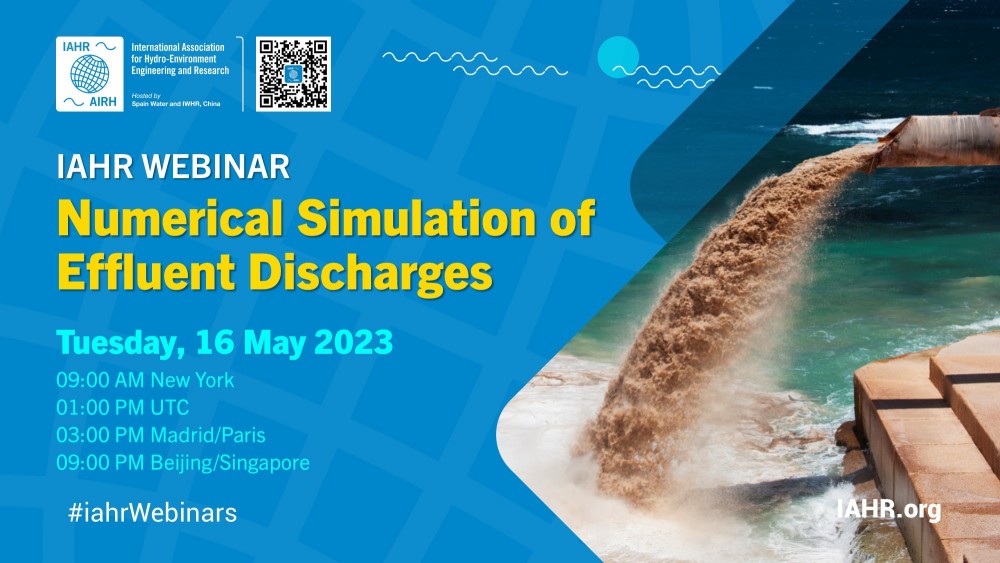Outfall Systems Design: A Down under Perspective
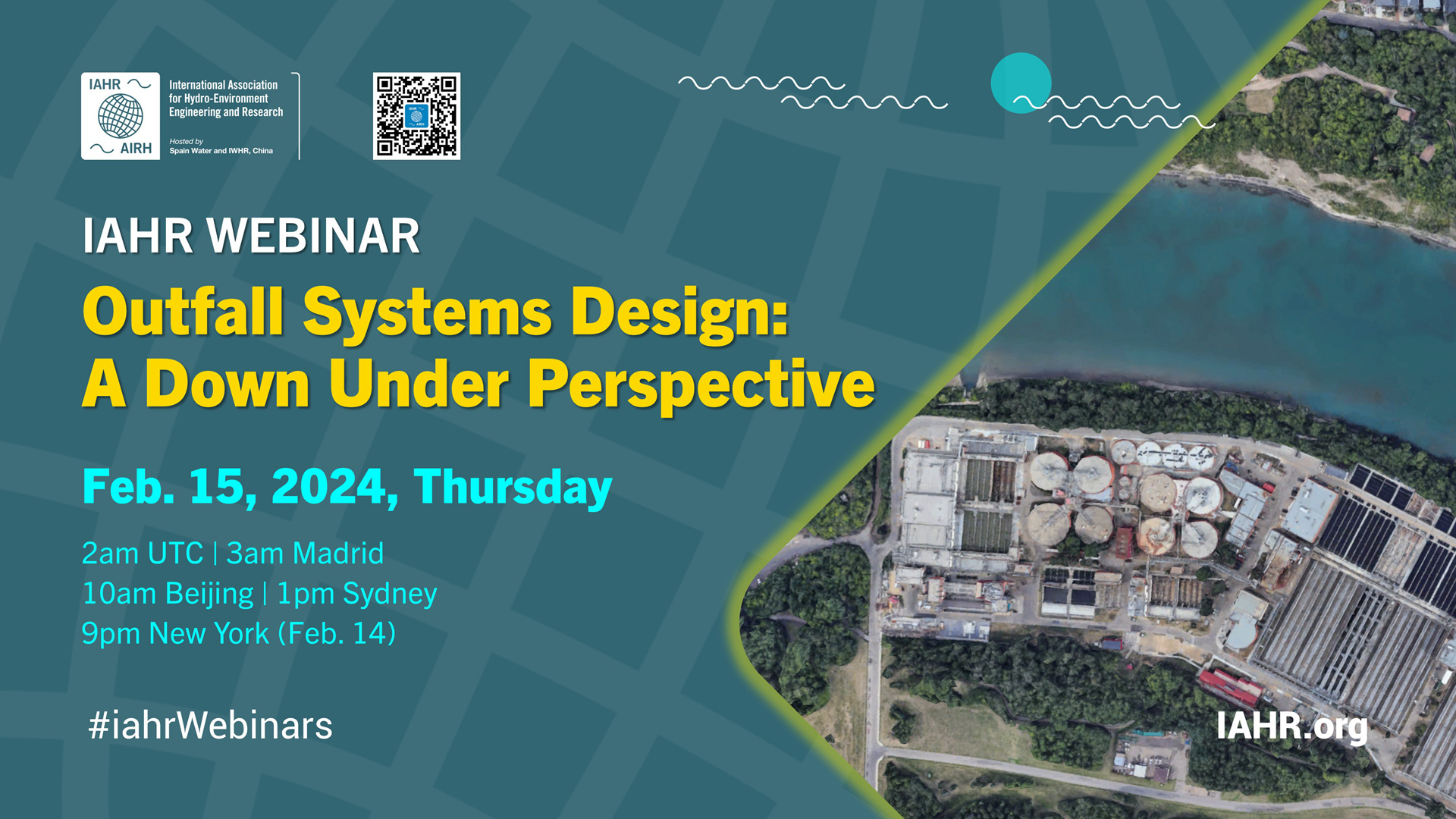
~ FREE ZOOM WEBINAR ~
IAHR Webinar on
Outfall Systems Design: A Down Under Perspective
February 15, 2024
2 AM UTC | 3 AM Madrid | 1 PM Sydney | 10 AM Beijing | 9 PM (Feb. 14) New York
The main objectives of the IAHR/IWA joint committee on outfall systems are to advance the science and technology of all aspects of wastewater discharges from outfalls and their design, to disseminate knowledge and to facilitate communication between the diverse groups of practitioners in the field. The webinar begins with a discussion on perceptions and facts with regard to outfall systems drawing from examples of outfalls currently in operation. The second presentation deals with the methodology and findings from an environmental impact assessment of an advanced water recycling center in Australia, providing details of the applied modelling tools and lessons learned from the impact predictions. A case is made for improved communication of what outfall systems are and do and their important role in support of achieving SDGs by 2030.
Speakers
Chair
Program
Opening and introduction
Majid Mohammadian | Professor, University of Ottawa, Canada
Presentations
(Each 30 mins, including a 10 min Q/A period)
Outfall Systems - Perceptions and Facts
Daniel A. Botelho | Principal Engineer, Water Technology, AustraliaUpper South Creek Advanced Water Recycling Centre Environmental Impact Statement
Ed Beling | BEng. MSc. CPEng., Intrawater, Australia
Concluding
Majid Mohammadian | Professor, University of Ottawa, Canada
Abstracts of the Presentations
Outfall Systems - Perceptions and Facts (by Daniel A. Botelho): Outfall systems often receive criticisms due to misguided public perceptions about their function, performance, and costs. In this talk we explore some examples in Australia and overseas where these perceptions are challenged by objectively looking at the services that a well designed and constructed outfall can provide. In doing so, we make a case for the role of outfalls in supporting the United Nations Sustainable Development Goals and highlight the importance of the IAHR-IWA Joint Leadership Committee on Outfall Systems in sharing the learnings, experiences and advancements in the different fields of science related to outfall systems.
Upper South Creek Advanced Water Recycling Centre Environmental Impact Statement (by Ed Beling): The Upper South Creek Advanced Water Recycling Centre will have the capacity to treat up to 70 megalitres of wastewater per day. Located in Western Sydney, the facility will supply wastewater services to 400,000 new dwellings in the rapidly growing Western Sydney Aerotropolis Growth Area. In 2021, as part of the planning and approvals phase of the project, Sydney Water submitted an Environmental Impact Statement (EIS) to describe the project and assess its environmental and community impacts. One important element of this EIS involved assessment of the potential impacts on hydrodynamics and water quality within the receiving waters of the Hawkesbury Nepean River and South Creek. The presentation will provide an overview of the methodology and findings from this hydrodynamic and water quality impact assessment, including a focus on the modelling tools adopted, their application to evaluate impacts on the receiving waters, and finally how key findings from the assessment were presented.
Short Bios
Daniel Botelho is a Principal Engineer and consultant with Water Technology in Brisbane, Australia. Daniel has over 25 years’ experience in surface water quality management providing support to government and a range of industries. As an expert consultant, Daniel has undertaken varied submarine outfall assessments for treated industrial and domestic effluents, as well as desalination plants. He is a Past Chair and currently a Co-opted Member of the IAHR-IWA Joint Leadership Committee on Outfall Systems.
Ed Beling is a senior environmental scientist and chartered civil engineer. Over the past three decades, he has developed an extensive track record of assisting clients in defining, managing and mitigating environmental risks associated with their projects. His career background and specialist skills lie in the fields of effluent management strategies, outfall design, numerical modelling and environmental impact assessments relating to both inland and coastal waterways. His recent work has ranged from major environmental assessments and sustainability studies through to the design of wastewater outfall infrastructure for domestic sewage treatment facilities and desalination plants. Several of Ed’s projects have also involved the provision of scientific and engineering input to guide regional management strategies. He is the current vice chair of the IAHR-IWA Joint Committee on Outfall Systems.
More Information
How to participate: This webinar will be held via ZOOM Webinar, please click here to register and get the Zoom Webinar link.
More about the IAHR/IWA Joint Committee on Marine Outfall Systems
To request your Certificate of Participation, please fill an online form, which is only valid for completion during the webinar. Please do not fill it out before or after the webinar.
Previous Events
2023-10-30 to 2023-11-01
2023-05-16
